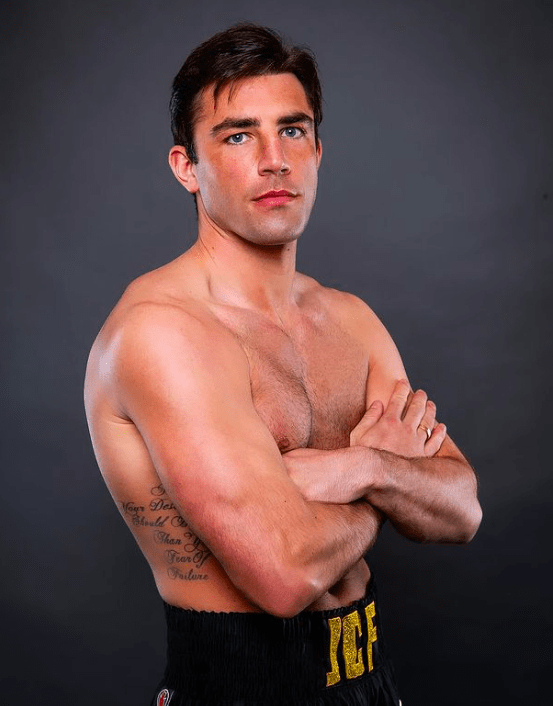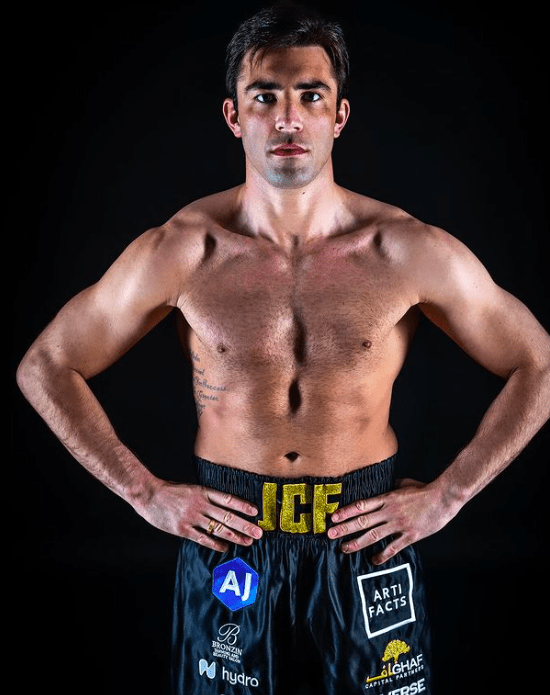Stunning Transformation
Jack Fincham, the Love Island star, has revealed his remarkable three stone weight loss after switching to a healthy boxing diet. He is set to return to the ring in Dubai at Crypto Fight Night.
Healthy Lifestyle Change
Fincham shared that he ditched junk food and embraced a new diet with the help of nutritionist David Stache, known for working with world champions like Anthony Joshua.
Dedication and Consistency
Through hard work and dedication, Fincham stuck to a strict diet of eggs, chicken, salmon, and steak, resulting in a significant weight loss of nearly 20 kilos.
Boxing Comeback
After stepping away from boxing in his teenage years for a party lifestyle, Fincham returned to the sport and is now focused on making boxing a major part of his life, eyeing potential opponents like Aaron Chalmers and Tommy Fury.

Upcoming Fight
Fincham is gearing up for his match against trader and martial artist Ahmed Mousa at Crypto Fight Night 4 in Dubai, which will be live-streamed on Triller TV and Myco on 19th April.
Frequently Asked Questions
How long will it take me to become a boxer professional?
The time to become professional boxer can differ greatly. It is dependent on the starting level of the boxer, his/her ability to adapt, and how well he/she trained. In general, it takes several years of training and experience as an amateur to be ready for the professional world. Some talents will develop faster than others.
What are the main components of a professional boxer’s routine?
A boxer’s training routine typically consists of several key components. This includes technical skill development and tactical drills. It also includes strength and condition, sparring sessions, and mental prep. Tactics drills help develop fighting strategies, while technique-focused exercises improve defensive maneuvers and punch accuracy. Conditioning exercises enhance athleticism, and sparring provides practical fight experience. Mental training focuses on building confidence, focus, and resilience.
What are the risks associated with professional boxing?
Like any contact sport, professional boxing is not without its risks. There are many acute injuries that may occur, including head trauma and fractures. Chronic conditions can also develop, such a concussions. While proper training, safety equipment and compliance with boxing regulations can reduce the risks, they will never be eliminated. Accepting and understanding these risks are essential to choosing to box professionally.
How do boxers control their weight and maintain their weight classes?
Boxers keep their weight under control by following a rigid diet and a specific training program. Dieticians work with boxers to create a diet that allows them to achieve their weight-class target without sacrificing energy and nutrition. The importance of regular weight check-ins and regular exercise is crucial, especially in the run up to a fight. Weight management can be a strategy that can cause health problems or poor performance if it is not done correctly.
Is there an age limit for boxing?
Professional boxing does have age restrictions. Most boxing commissions require that boxers be 18 years or older to compete professionally. Although there is not a set age limit for the upper age bracket, factors like physical capability and health will naturally limit what age one can safely and effectively compete. Before taking up a sport professionally, older athletes should be assessed thoroughly for their fitness and risks.
What is the best equipment for a beginner in professional boxing to start with?
If you are just starting out in professional boxing, essential equipment for beginners includes boxing gloves and hand wraps. Also, a mouthguard is necessary, as well as headgear, proper footwear, and a mouthguard. The use of a heavy, speed, or double-end bag is essential for technical workouts. It’s crucial to use quality equipment that offers protection and durability, as subpar gear can increase the risk of injury.
What is needed to start training as a professional boxer?
To begin training for professional boxing, one must possess a strong commitment to physical fitness, discipline, and a willingness to learn. The first step in training is to learn the basics, such as footwork, stance, punches and defensive techniques. You should join a reputable gym with trainers who are experienced and understand the nuances in professional boxing competition. Novice boxers typically undergo a rigorous regimen of conditioning, technique drills, and sparring to develop their skills before considering competition.
Statistics
- Research shows that a boxer’s reaction time is typically under 0.25 seconds, honed through repetitive drills and sparring.
- On average, a professional boxer spars between 100 to 200 rounds in preparation for a major fight.
- A study showed that most professional boxers have spent more than 4 years in training before their first professional bout.
- Professional boxers typically train 4 to 6 hours per day, 5 to 6 days a week, depending on their fight schedule.
- As per recent surveys, only about 17% of professional boxers reach a title shot opportunity in their careers.
- Nutrition experts emphasize that over 70% of a boxer’s diet should focus on carbohydrates and proteins for energy and recovery.
- The average age for boxers to turn professional is between 18 to 25 years, though many continue to compete well into their 30s and beyond.
External Links
boxingnews24.com
ringtv.com
usaboxing.org
sweetsciencefitness.com
precisionstriking.com
boxingforum24.com
boxingscene.com
How To
Start training for professional boxing
Starting your journey in professional boxing takes dedication and a strategically-minded approach. Start by looking for a reputable gym with experienced, qualified boxing trainers. Start building a strong foundation through learning the basics of stance, footwork, and proper punching techniques. Conditioning is crucial, so include cardio, strength training and flexibility exercises as part of your daily routine. Become immersed in the sport, by observing professional fights. Learn from the pros, be diligent with practice and stay consistent with your regimen.

